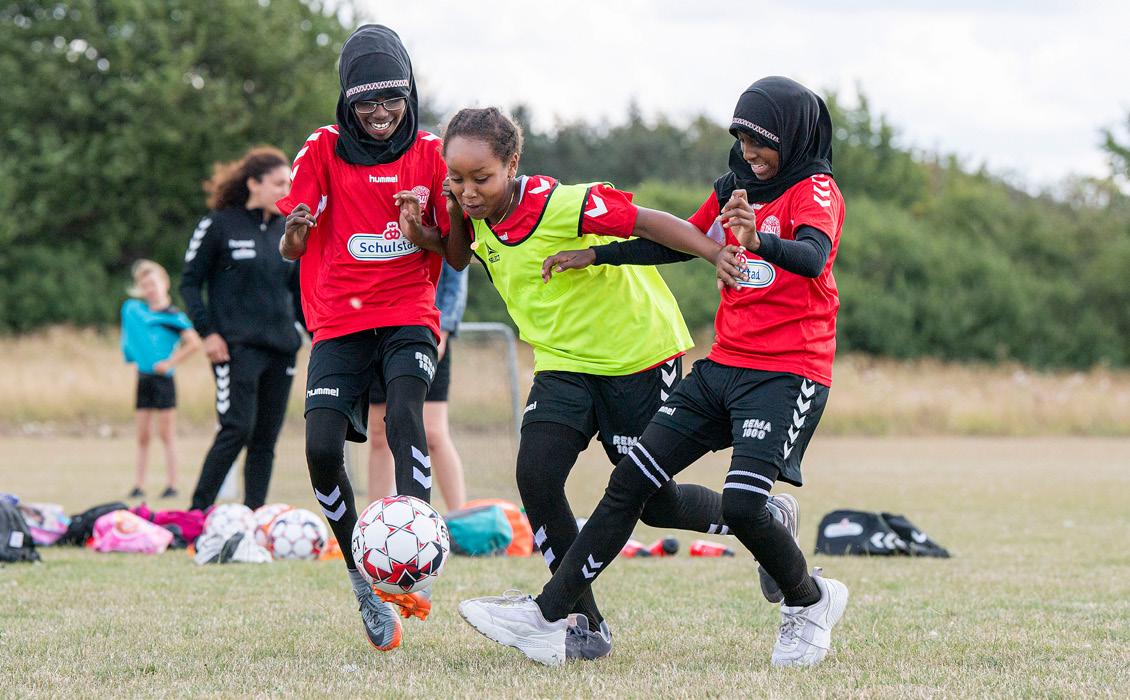
1 minute read
Future visions
“We are missing research on the social and psychological aspects in relation to football, especially with a certain quality. This is very important when we meet the politicians.” From the NGO perspective, working together with researchers is often based on funds. This can be a very demanding task, and this often stops the NGO. This makes it difficult to get knowledge on specific elements of civil society and the football activities they offer and get the everyday work of the NGOs scientifically validated. As mentioned in the quote, scientific validation and research is important for the NGO when they meet with politicians, and for creating better collaboration with the municipalities. The researcher becomes a gatekeeper for the NGOs in getting arguments, legitimacy, and validation when they meet the policy makers. But often the collaboration between the NGOs and the researchers is problematic. A stakeholder explains how:
“They (researchers) almost close the computer if there is no more research money.” When working together from a civil-state and grant-driven research world and a volunteering world, we recognised the difficulties of having different cultural values and contexts. To some extent, NGOs and researchers are competitors in applying for the same grants. The interesting and potentially proactive and productive question is how to get the two cultures and organisational worlds to work together:
Advertisement
"How do you get two organisation worlds – the volunteering world and the state grant-driven research world – to work together? What are the premises and how can this be done?"
Future visions
The NGOs seem very open to new opportunities for collaboration, although they operate in a context of engaging as many volunteers as possible and in a charity-based world, which may be a challenge to understand for other collaborating partners. As such, expectation matching may be filled with challenges:








